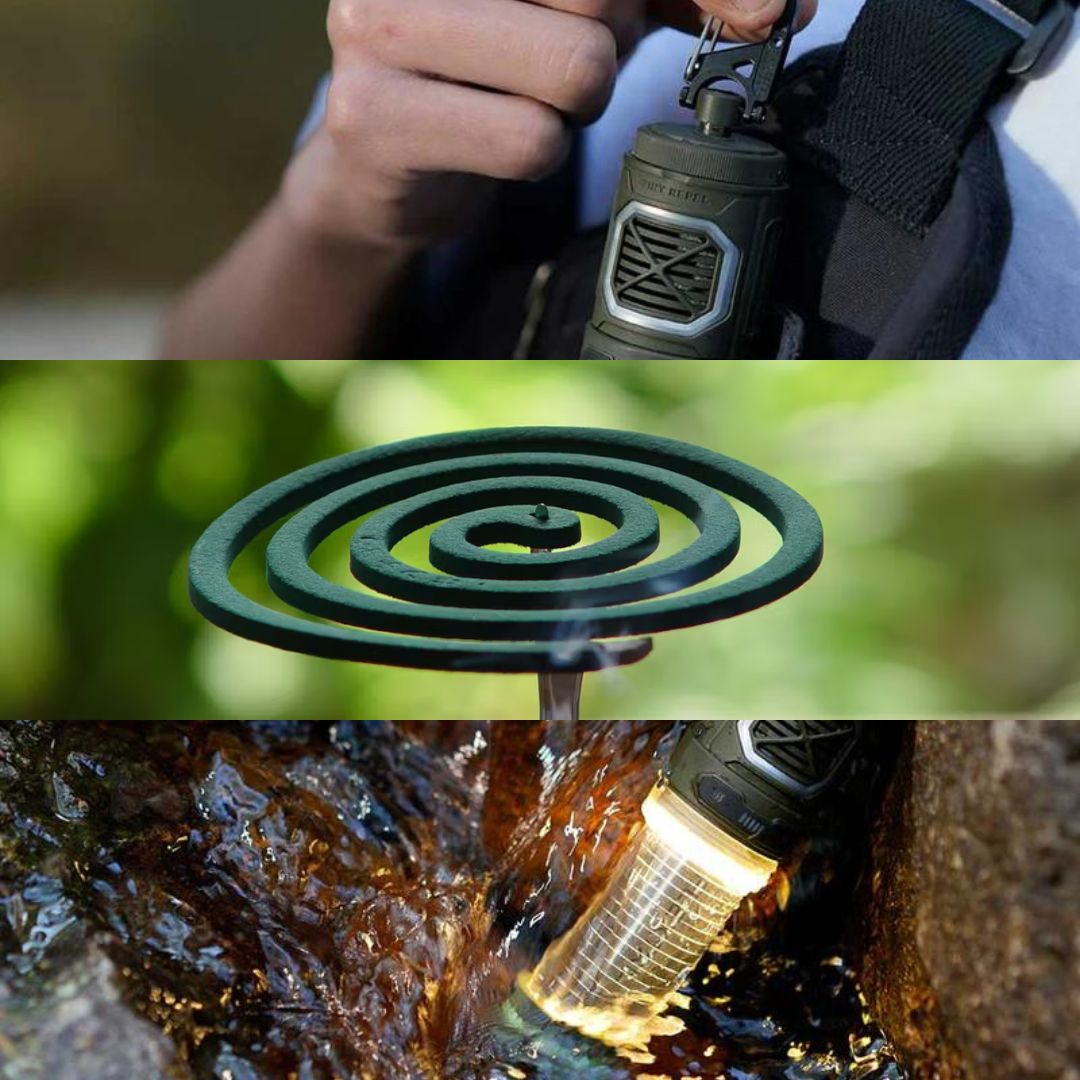Let's talk about something we all have faced: the annoyance of mosquitoes. These buzzing little creatures aren't just irritating; they can be downright dangerous, transmitting diseases like malaria and dengue.
This is where mosquito repellents come in as our trusty shields. However, do all types of mosquito repellants work well? Not really! There are tried and trusted methods like coils or natural oils that humans have been using for thousands of years.
On the other hand, there are modern mosquito repellants, that may be using a chemical, Ultrasonic, or some other technology for mosquito control.
In this article, we're diving into a fascinating comparison between the traditional methods we've known for years and the new kids on the block - modern mosquito repellents. Are the new technologies really better, or do the old-school methods still hold their ground? Let's find out together!
What is a Mosquito Repellant?
Mosquito repellents are designed to keep mosquitoes away from you. They work by creating a barrier—either on your skin or in the surrounding area—that mosquitoes find unappealing.
The main goal? To prevent bites, of course!
The history of mosquito repellents dates back to 2000 BC, with the ancient Egyptians burning citronella oil and other plants for protection. Greeks and Romans also used plant-based repellents. The 17th century saw the discovery of quinine from cinchona bark for treating malaria.
In the 1940s, DEET, the first synthetic repellent, was developed, followed by others like picaridin and IR3535. Modern times have introduced advanced repellents, including FLEXTAIL's innovative products, offering various forms like sprays, lotions, and portable devices to suit diverse needs.
Traditional Mosquito Repellants
First off, we've got a bunch of types: think citronella candles, those spiral coils that smoke up, and various natural oils like eucalyptus or lemon grass.
How do they work? Well, these guys use their ingredients to either mask our scent or repel mosquitoes by emitting smoke. For example, citronella candles release a smell that mosquitoes hate!
However, do not expect a coil to keep you safe from all the mosquitoes in an area as mosquitoes can cross the barrier these repellants create, and often times these bugs just don’t care.
Generally, traditional repellants are pretty safe, especially the oils. But, remember to be careful with anything that burns, like candles and coils.
Modern Repellants
There are many different types of modern mosquito repellants. If you browse the internet, you’ll find ultrasonic repellants, bracelet repellants, and many other options. However, there is debate if all of them work well.
Advanced chemical formulations are also on the rise, leveraging heat activation to disperse repellents more effectively. Each type brings something unique to the table, catering to different needs and preferences.
Ultrasonic devices, for example, emit sound waves that are unpleasant to mosquitoes but typically inaudible to humans. Wearable technologies often incorporate microfiber materials or electronic methods to release repellent compounds gradually.
Most users agree that repellants that use some type of synthetic repellant and heat activation technology work the best in most cases. Usually, ultrasonic repellants or wearable bracelet repellants are gimmicky and don’t work.
So, a modern mosquito repellant such as the Flextail Tiny Repel or Max Repel S would work best in most cases. These are rechargeable devices that you can take on your camping trip easily. These devices use a synthetic chemical mixture of Allethrin and Meperfluthrin and heat to disperse that mixture.
Also, with added features such as a lantern or power bank system, modern repellant devices can be a unique and sustainable method of repelling mosquitoes!


